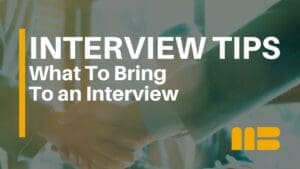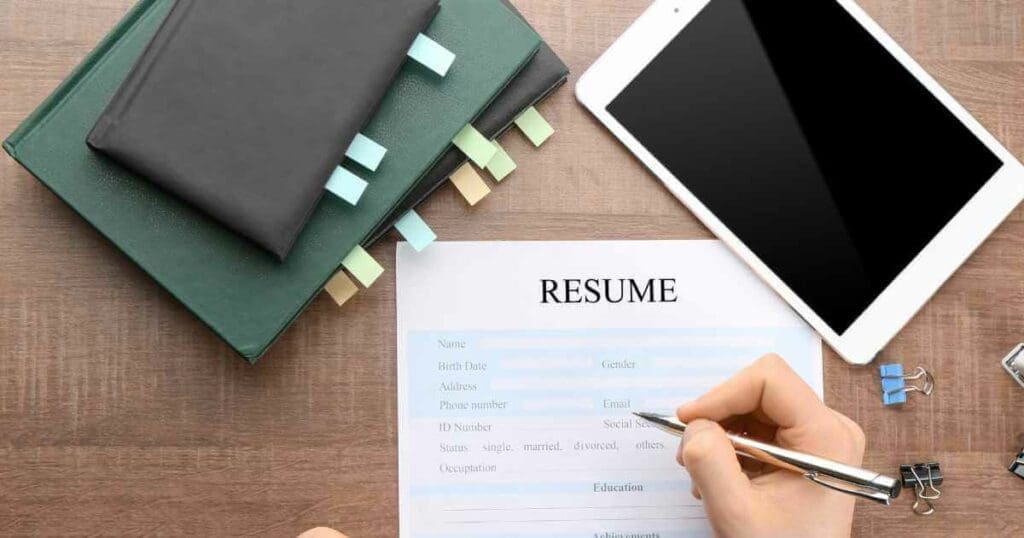At MatchBuilt, we understand that success in an interview begins with preparation. This guide equips you with a meticulously curated list of 10 indispensable items, ensuring you’re primed to impress.
Your Interview Arsenal:
- Professional Documentation: Carry polished resumes and reference lists.
- Engagement Tools: Bring a notepad and pen to capture crucial details.
- Inquisitive Edge: Prepare a set of questions that convey your company insight.
Preparation can be as decisive as the interview itself,” states the Harvard Business Review, underscoring the strategic advantage of thorough readiness.
Why MatchBuilt is Your Trusted Advisor:
- Proven Expertise: Decades of experience distilled into actionable advice.
- Tailored Guidance: Insights refined to enhance your interview impact.
- Track Record: A history of guiding candidates to successful career milestones.
Leverage this guide to transform your interview prospects. With MatchBuilt, you’re not just ready; you’re set to make an indelible mark.
What Should You Bring to an Interview?
1. Multiple Copies of Your Resume
Never assume that the interviewer will have a copy of your resume. Bring several copies printed on high-quality paper to distribute to the interviewer and other panel members. This demonstrates your professionalism and allows everyone to follow along during the discussion.
2. A Notepad and Pen
Taking notes during the interview shows your attentiveness and helps you remember important details. Use a professional-looking notepad and a pen with black or blue ink. Jot down any crucial information, such as the interviewer’s name or specific job requirements, to refer back to later.
3. References and Recommendation Letters
Bring a list of professional references, including their contact information. Consider bringing copies to support your qualifications if you have written recommendation letters. Having readily available references shows you’re well-prepared and have strong professional relationships.
4. A Portfolio or Work Sample
If you work in a field that involves visual or tangible outputs, such as design or writing, consider bringing a portfolio or work samples. These provide concrete evidence of your skills and achievements, giving the interviewer a better understanding of your abilities.
5. Identification and Necessary Documents
Carry a valid form of identification, such as your driver’s license or passport, to verify your identity if needed. Additionally, bring any documents requested by the employer, such as your academic transcripts, certifications, or licenses. Organize these documents in a professional folder or envelope.
6. Questions to Ask the Interviewer
Demonstrate your enthusiasm and preparedness by asking insightful questions about the company, the role, and the team. Prepare a list of thoughtful questions to ask the interviewer, showing your genuine interest in the position and your desire to learn more.
7. A List of Personal Accomplishments
Prepare a list of personal accomplishments and success stories relevant to the position. These examples can help you illustrate your skills and experiences when responding to behavioral or situational questions. Be ready to share how you’ve overcome challenges and achieved positive outcomes.
8. A Positive Attitude and Confidence
While not an item per se, your attitude and confidence play a significant role in interviews. Bring a positive mindset and project confidence through your body language and responses. Show the interviewer that you believe in your abilities and are genuinely excited about the opportunity.
9. Directions and Contact Information
If applicable, ensure you have the interview location’s address, including the floor or suite number. Plan your route in advance, considering traffic and potential delays. Carry the interviewer’s contact information in case of emergencies or unexpected changes.
10. Breath Mints and Personal Grooming Items
Maintaining good personal hygiene is crucial during an interview. Carry breath mints or freshening strips to ensure your breath stays fresh. Additionally, bring a comb or brush to tidy up your appearance before entering the interview.
Interview Preparation FAQs: What Should I Bring?
Bring copies of your resume, cover letter, and any relevant supporting documents or certifications.
Yes, bringing multiple copies of your resume to share with interviewers or if there are multiple rounds is recommended.
Preparing a list of thoughtful questions to ask the interviewer about the company or the role is a good idea.
Absolutely, bringing samples of your work or a portfolio can help showcase your skills and experience.
Having a reference list is beneficial, but you may provide it later upon request unless specifically mentioned in the job application.
Yes, it's important to provide your contact information, including your phone number and email address, in case the interviewer needs to reach you.
If the job description mentions any specific items, such as writing samples or certifications, it's advisable to bring them if relevant.
Absolutely, bringing a notepad and pen is encouraged for jotting down important information or questions during the interview.
While it's not necessary to bring a copy of your cover letter, it can be helpful if you want to reference specific points or achievements mentioned in it.
Yes, if you have any supporting documents or certifications that are relevant to the position, it's advisable to bring them to demonstrate your qualifications.
The Ultimate Interview Essentials: What You Need to Bring for Success
As we reach the end of this blog post, we hope you now understand what to bring to your next job interview. By following our comprehensive checklist and incorporating our shared best practices, you’ll be well-prepared to make a lasting and positive impression on the hiring manager.
Remember, whether it’s an in-person or virtual interview, the last thing you want is to be caught off guard or feel unprepared. Ensuring you have essential items such as copies of your resume, a list of questions, and samples of your work can go a long way in showcasing your qualifications and professionalism.
Additionally, having important contact details readily available, such as your phone number and email address, will ensure effective communication and follow-up at the end of the interview. A handy reference list is always a good idea, as it demonstrates your preparedness and eagerness to provide further information.
By thoroughly reviewing the job description and familiarizing yourself with the most common interview questions, you can confidently articulate your skills and experiences. Being well-prepared is the best way to tackle any interview, as it gives you the confidence to navigate the interview day smoothly.
We encourage you to utilize our checklist and incorporate these tips into your interview preparation. Gathering the following items, including a copy of your resume and samples of your work, can make a great difference in presenting yourself as a strong candidate. Remember, a well-prepared job search goes a long way toward securing your next job offer. Good luck with your first interview, and may you excel in your job search!
If you’re looking for more information about interview preparation, check out our posts on landing more interviews, the best time to interview, and the ultimate interview prep checklist.




